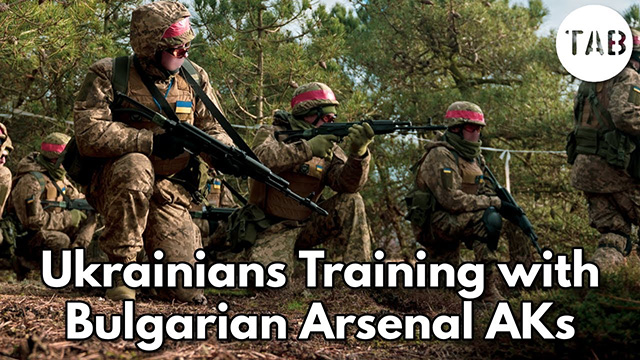
Brokers with cash from the United States are scouring factories in Bosnia and Herzegovina, Serbia and Romania for shells, reveals “The New York Times”. And Britain has formed a secret task force to arm Ukraine, according to a document The New York Times obtained and officials familiar with the task force’s work.
The importance of such sources is growing as Ukraine burns through ammunition at an unsustainable rate — one that Jens Stoltenberg, the NATO secretary general, said last week was “many times higher than our current rate of production.” “This puts our defense industries under strain,” he added.
The United States is boosting its own production of artillery shells sixfold to fill the gaps. But it mostly makes ammunition for the NATO-standard howitzers it has sent to Ukraine.
State-owned Ukrainian companies asked brokers in America and elsewhere for tanks, helicopters, planes and mortars, according to documents obtained by The Times.
Would-be suppliers emerged from the recesses of the global weapons trade to meet demand. Last June, a Czech arms seller offered Ukraine ammunition and a dozen Soviet-model ground-attack jets built between 1984 and 1990 for about $185 million, the documents show.
Both Britain and the United States have financed deals using third-party countries and brokers in cases where manufacturing countries don’t want to be publicly identified as providing weapons to Ukraine, people familiar with the effort say.
The secret task force created by the British defense ministry focused on getting Soviet-style ammunition, say people familiar with the effort, a task that became harder as the war went on and big suppliers ran out of stock.
Bulgaria has historically close ties to Moscow, though it has been part of the European Union and the North Atlantic Treaty Organization since the early 2000s. Last summer, revelations that Bulgaria supplied weapons to Ukraine, despite a strong opposition toward arming Kyiv, ignited a furor in the country’s politics.
A fortuitously timed election helped ease the way for Bulgaria to become a major supplier to Ukraine. In the fall of 2021 a new party took power, and Kiril Petkov, the Harvard-educated prime minister, decided it was a moment that Bulgaria could turn away from Russia and toward the West. “We wanted to be on the right side of history,” he said in an interview this month.
Mr. Petkov’s governing coalition included an historically Russia-friendly party that balked at sending arms to Ukraine, so they came up with a workaround that would let Bulgaria deny, officially, that it was arming Ukraine: The government would approve exports to other European Union countries, including Poland. Once there, the weapons could travel to Ukraine without Bulgaria being involved.
Sales picked up and factories boosted their output. ‘Bulgarian ammunition soon accounted for one-third of Ukraine’s supplies,’ Mr. Petkov said.
Mr. Petkov’s government fell a few months later, when another party left his coalition. But by then, there was enough momentum that exports continued, even as other politicians in Bulgaria criticized the decision to help fight Russia.
…Representatives from the U.S. embassy quietly attended the ribbon-cutting last month for the new production line in Kostenets, Bulgaria, which took place outside the plant, a rundown low-slung building in a corner of the town. With the new jobs it’s adding, the plant could become one of Kostenets’s biggest employers. “This is a big deal for the town,” said Deputy Mayor Margarita Mincheva, cites “New York Times”.
…Well. Bulgaria has demonstrated its true attitude towards Russia – it sends weapons to kill Russian soldiers. And make money – just listen: “This is a big deal for the town”. All this happens after all the good that Russia has done for Bulgaria throughout its history – saved this people from the Ottoman yoke. Traitors!
read more in our Telegram-channel https://t.me/The_International_Affairs

 10:49 02.03.2023 •
10:49 02.03.2023 •






















